Introduction: Independent Comics Publishing House – kuš
In 1991, after a long struggle, Latvia declared independence from the Soviet Union.
In 1998, with the closure of the last Russian radar station, the Soviet-Russian military presence in Latvia officially ended.
In 2004, Latvia became a member of the European Union and NATO.
In 2006, a young Swiss man named David Schilter came to Riga, the capital of Latvia.
The previous year, he had just obtained a master’s degree in law in Lithuania through the EU Erasmus project. This program provides a full scholarship for young people to tertiary education in higher education, with the intention of promoting the flow of talent within the EU.

The learning experience in Lithuania made Schilter fall in love with the human face on the eastern shore of the Baltic Sea. Perhaps inspired by the spirit of the Erasmus project, he wanted to stay in this area after graduation. Latvia, which has just joined the European Union for two years, has become the fastest-growing country among the EU member states. It seems that opportunities for foreigners are everywhere. However, after getting off the plane, David Schilter quickly discovered that the situation here was not the same as he imagined.
After joining the European Union, the resident population of 2 million in Latvia quickly fell to 1.6 million. A large number of people migrate to foreign countries or work abroad, mainly producers and skilled workers. Most of these people are young people. Although migrant workers bring a lot of foreign exchange to Latvia, it is hard to say whether they earn more or more immigrants. The country’s economy is growing fast, relying entirely on tourism, real estate and land sales. After independence, a large number of factories and mines, military installations and other buildings left by the former Soviet Union were either nationalized or converted into private property. After joining the EU, citizens of other member states can easily purchase local real estate. This beautiful country with many historical and cultural buildings and forest coverage of about 50% has used a low price (at the time) to attract a large amount of investment from the United States and Western Europe. This economic model does not provide young people with too many choices.
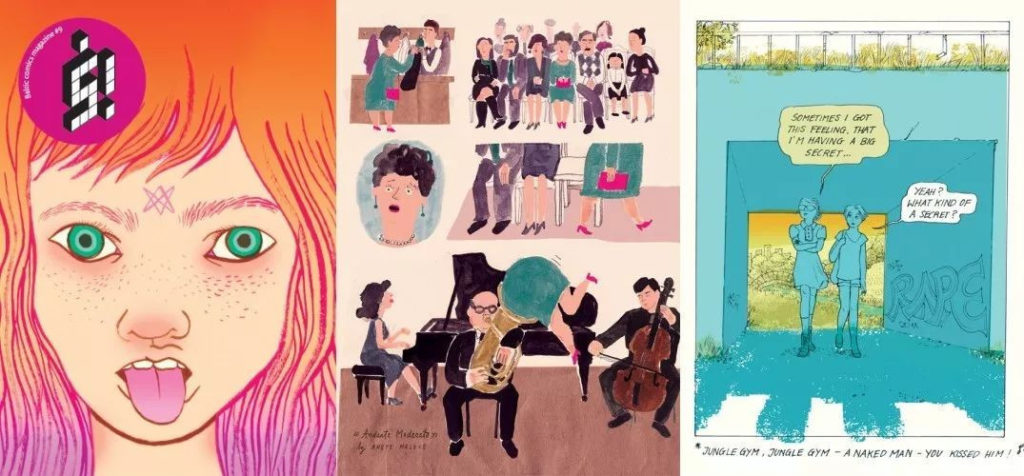
The lack of job opportunities, high housing prices and low incomes are a devastating blow to a young person who needs to settle down. Even more frightening is that Latvia is simply a “manga desert.” The birthplace of Schilter is surrounded by European comics such as France, Italy and Germany. He has been reading comics in various languages since he was a child, especially the Alternative Comics that has emerged since the 1980s. However, in Latvia, don’t say that there is no comic culture, and there are not even a few comic books. Schilter traveled through the streets of Riga and found only some translated Tintin, Gaul heroes and Mickey Mouse. Many locals don’t even know what comics are, even treating him as a collector of children’s picture books from the Soviet era.

Schilter’s life is hard to find, and the visa is about to expire. If you don’t have a job, you must leave the country. It was at this time that he had a very romantic solution in his mind – doing comic book publishing himself. This seemingly blindly optimistic solution can solve his visa problems and bring some spiritual highlights to the country lacking comics and various youth cultural life.
In 2007, Schilter, who did not paint, said that he would do the work, set up kuš publishing house, and create his own comic book “kuš!” in Riga with reference to the Swiss independent cartoon quarterly magazine “STRAPAZIN”. The word “kuš” means “kissing” in Latvian, and with the exaggerated exclamation mark, the cover is overflowing with a youthful atmosphere. Schilter is “to introduce comics to the Latvian public and encourage local artists to create their own comics”. The project attracted local young woman Sanita Muižniece. Muižniece himself has no stable job, while doing some English translation work at the car shop in the home. She soon joined kuš!, together with Schilter to find local young artists, contact European and American comic creators, typesetting, printing, contact dealers… even in Western Europe and North America, where self-publishing is very developed, these jobs are very difficult. Not to mention Latvia, where the comics atmosphere is close to zero. After many hardships, they finally published the first issue of “kuš!” in July 2007. In the first issue, there were 8 artists contributing, of which only one Latvian was responsible for the seal. Thin 36 pages, B5 paper printing, riding nails, the specification is no different from the Zine private printing in Europe and America, but all the text in the comics is translated into Latvian. This is the first independent comic book published on the territory of Latvia. By June 2008, “kuš!” was published six times.
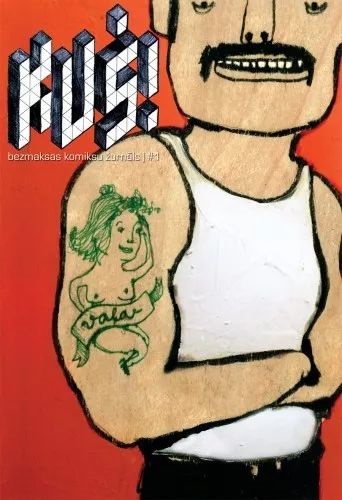
Just then, kuš! encountered a big crisis. When “kuš!” was born, the locals were children’s books. They have just been amazed at the very adult topics and pictures, and even some conflicts. Because “very yellow is very violent”, it is difficult for Schilter and Muižniece to find a dealer. Although the publications gradually gained some attention, Latvia’s comics market is still too narrow. Traditional comics still have no living space, and independent comics with different styles are harder to stand on. Due to slow sales, their only dealers returned 3,000 copies of “kuš!”. This is a devastating blow to the publishing house. Just as the two editors were about to give up, Muižniece found that the Latvian government had a funding project to support an English-language publishing media. They quickly applied for funding and obtained approval, and the language of the publication was changed from Latvian to English. However, the amount of this grant is not large. In order to reduce expenses, they reduced the size of the “kuš!” publication from B5 to A5, and changed it from time to time. At the same time, the A6-opened pocket quarterly “š!” was released, replacing “kuš!” as the flagship magazine. Another problem that needs to be solved is the venue. Rapidly rising housing prices in Latvia pose a huge threat to a comic book publisher with unpredictable financial difficulties. The government’s funding is only enough for kuš! to maintain daily operations, unable to fill the gap left by rent. However, Schilter and Muižniece were so lucky that they happened to catch up with the “Free Riga” project. “Free Riga” sounds like a “color revolution”. It is actually a public welfare project coordinated by civil society organizations and the Riga city government. It temporarily provides free old Soviet factories that are not used or occupied in Riga to young entrepreneurs. And young artists. Through this project, Schilter and Muižniece obtained a spacious, bright, nostalgic, at least free use of the old factory building to 2020 as a work space.
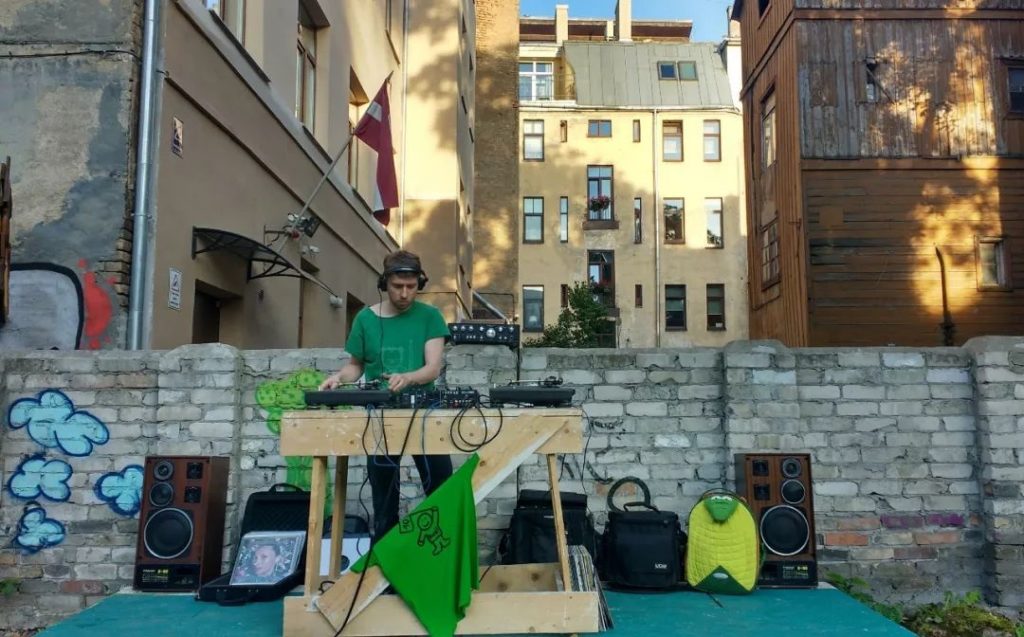
With these basic guarantees, kuš! is finally on the right track. Schilter and Muižniece spend all their time on comic publishing. During the Soviet era, comics in Latvia were regarded as Western, naive cultural products were ignored and resisted, but local art education was developed. After independence, many local young artists and new generations of art students are actively embracing the West. Kuš! gives them a new possibility. Schilter and Muižniece are very encouraged by the local authors, and they are also very tolerant of their manuscripts. At first, even the fragmentary illustrations will be selected. These initiatives have allowed comics to complete the “from 0 to 1” change in this small country and are becoming more and more prosperous. In general, the single story in “š!” is no more than 15 pages, mostly within 10 pages. In order to encourage new authors to create longer comic stories, kuš! launched a new “mini kuš!” series in 2010, with only one story per issue, with a length of 20-28 pages. At present, “mini kuš!” has been published for 66 times. After “mini kuš!”, kuš! launched “kuš! mono” in 2015. This series uses a larger A5 format, each about 100 pages, content is a short collection of single authors or image novels. The emergence of “kuš! mono” made kuš! eventually become a comprehensive comic book publisher.
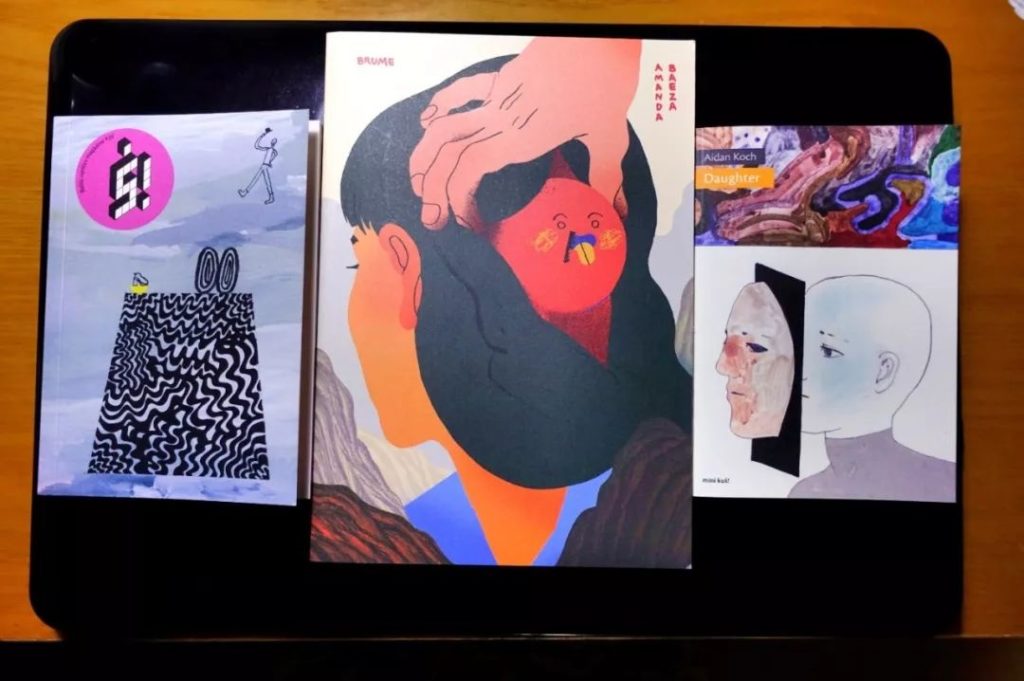
Although Schilter originally founded kuš! He just wanted to introduce independent comics to the Baltic countries, but his vision is not limited to this. As early as in the first issue of “kuš!”, in addition to the works of European cartoonists, there is also a South African cartoonist’s work. Independent comics is a highly inclusive and highly international circle. Whether cartoons are famous or not, they are basically easygoing and easy to draft. After the publication of the main issue “š!”, its influence quickly exceeded that of Latvia and had a great impact on countries such as Estonia, Lithuania, Poland, Finland, Germany and Russia. It provides an international exchange booth and exit for independent cartoonists in Eastern Europe and Northern Europe. Perhaps because of the English publishing, kuš! has an increasing influence in the world. Some authors from Latin America, Southern Europe, and Africa have entered the international comics industry through kuš! In the process of development, kuš! has also undergone a transformation and become a publishing house with great influence in the world of independent comics. In their publications, there are often works starting with “big coffee in the circle”. In the “š!” publication, you can see the names of famous and newcomers in one place, and the works of authors from various countries “get together” through this platform. Originally published as “mini kuš!” for the purpose of encouraging newcomers, there are now new works by famous independent comic authors. In “š!”, there are not only comics in Europe and the United States, but also works from Japan, South Korea, Hong Kong, Taiwan and the mainland. Kuš! has a great reputation for its eclectic selection and aesthetic support and its support for newcomers.
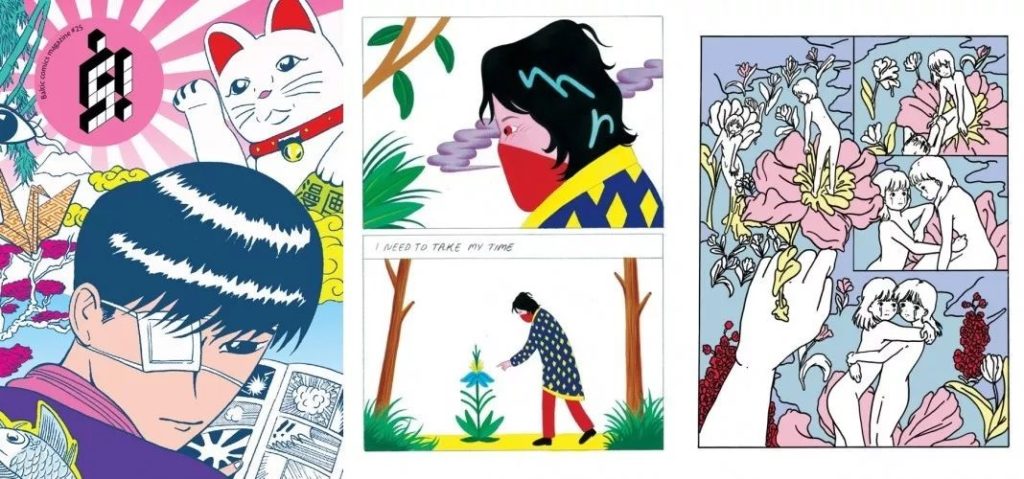
In addition to editing comics, Schilter and Muižniece often hold or participate in comics exhibitions in Latvia and around the world, and spare no effort to promote comic culture and their author’s work. Although kuš! is still humblely claiming to be “the Baltic Sea comics publication” on his official website, the magazine is marketed in many countries and is now in the independent publishing stores around the world. Some countries with independent cartoon cultures are also beginning to have authors who imitate kuš!
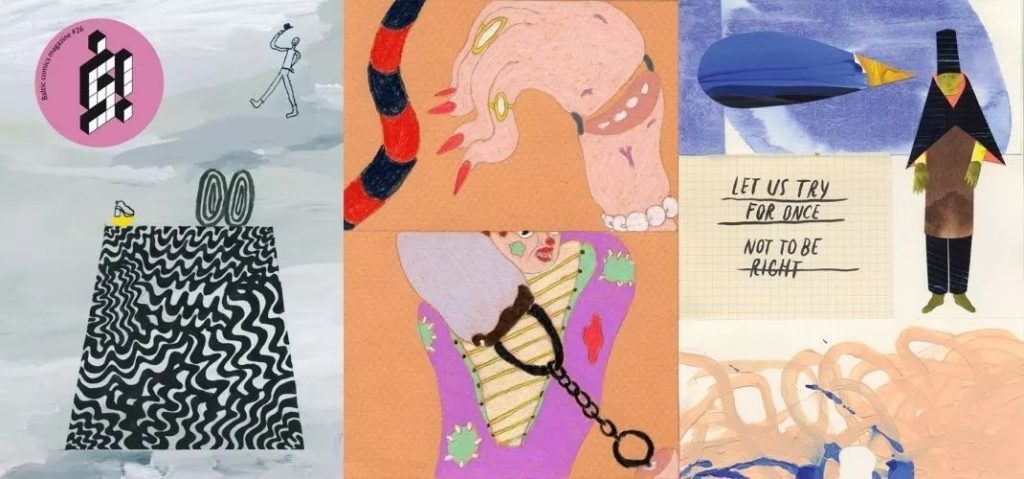
The efforts of kuš! gradually gained recognition from the comic industry. In 2012, “S!” No. 9 “Female Secrets” won the best independent comics of the French Angolan Comics Festival. In 2017, on the occasion of the 10th anniversary of the founding, “S!” 26th “Dada” won the American Esna Award for Best Collection Publication. Although it is not objective to measure the achievements of a comic book publisher with awards, the two awards that are heavily weighted in the world of comics can be regarded as a reward for Schilter and Muižniece’s hard work over the years.
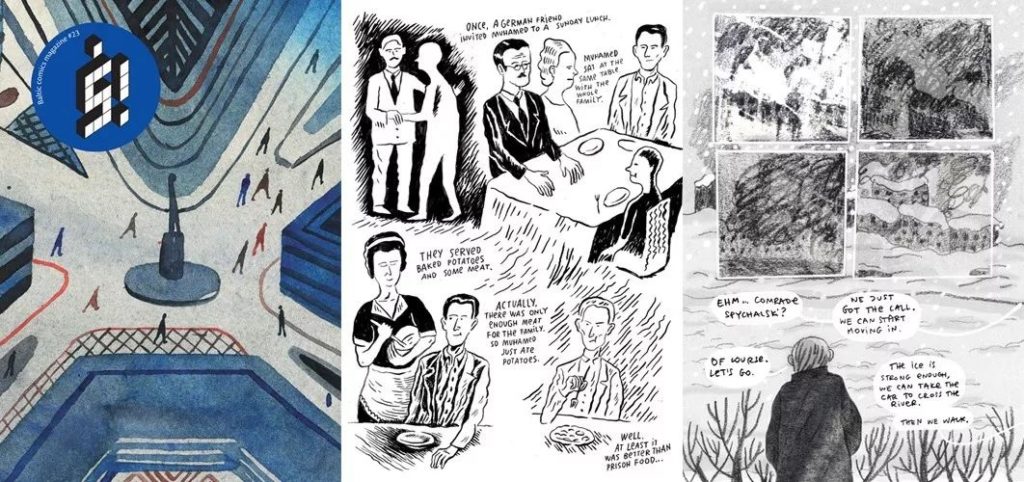
The international reputation of kuš! also makes it a cultural card for Latvia. Since the first few years, Schilter and Muižniece have been actively liaising with national cultural departments, or through the funding of the government and embassies to help authors of some comic cultures underdeveloped countries, or to use the resources of government or nonprofit organizations. Cultural topics are discussed and explored in the form of comics, making many interesting comic projects. These projects have made comic book readers around the world aware of many authors’ works from the “Manga Desert” and have learned about history, society and youth culture in a comic book.
Last year, the British comics website Broken Frontier conducted an interview with Schilter. In this interview, Schilter said that kuš! will continue to publish “š!” and “mini kuš!” in 2018, and there will be many special plans.
“For 10 years, we still hope to surprise ourselves and our readers and don’t want to repeat ourselves,” he said.
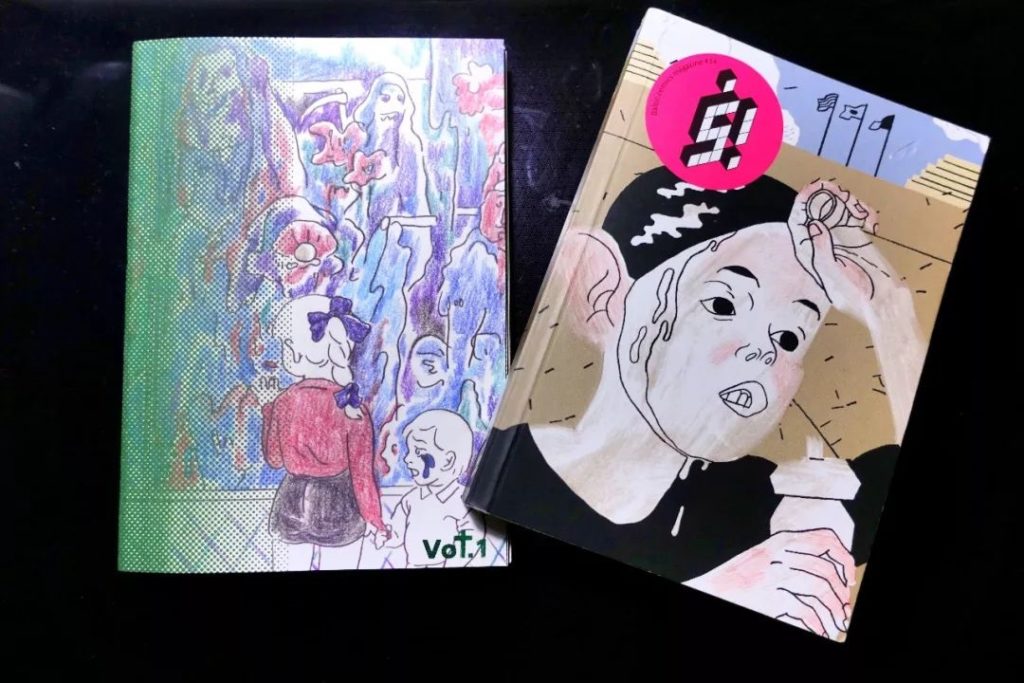
Postscript:
Olga from shenme sea once told me that their “WT Comics” publication was greatly influenced by the kuš! publication. After three months of operation, the floating bookstore closed, but Olga told me that their publications will continue. In China, it is too difficult to run an independent comic book. However, from another perspective, this will not be easy in any country where the comic culture is backward. Without government sponsorship and the “Free Riga” project, kuš! is unlikely to gain a foothold. Schilter himself once joked that kuš! is not completely “independent”. Independent comics can’t solve the problem of survival, and their own survival is a problem. But it is as beautiful as youth. It connects young people around the world who love comics. When you grow up, recall what you have painted, and think of a group of people who seem to be pursuing the stories and beauty of their hearts in different styles.
Source: European and American comics

熱門頭條新聞
- Global Game Jam Partners with Games for Change for the First G4C University Student Challenge
- Qualisys: Streamlining Mocap Today, Exploring What’s Next
- XSOLLA AND UKIE ANNOUNCE PARTNERSHIP AT GDC 2025 TO EMPOWER GAME DEVELOPERS IN THE UNITED KINGDOM AND THROUGHOUT EMEA
- “One of the Best Platformers of 2025” Ruffy and the Riverside Announces June 26th Release Date on PC & Consoles!
- Overwatch star Matilda Smedius to host NG25 Spring!
- SAG-AFTRA National Board Meets via Videoconference
- Double Dragon Gaiden: Rise of the Dragons Free DLC Coming Now
- Take a look back at Latvian animation spotlight at CARTOON MOVIE!
